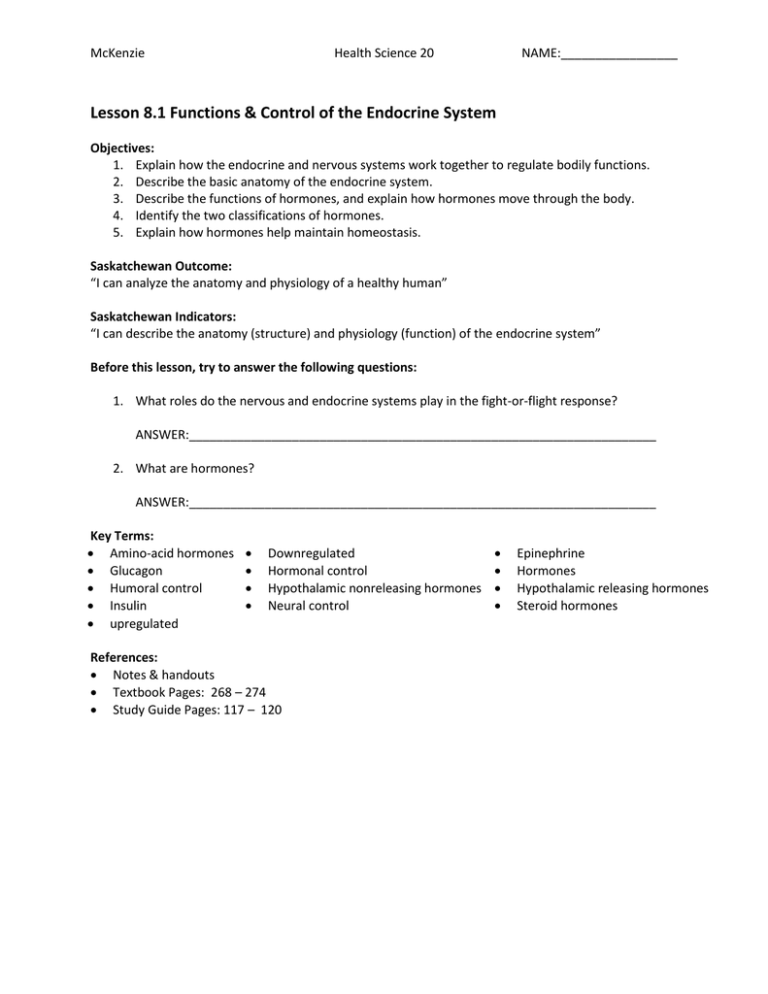

We could write an entire book on each topic (indeed, books already exist on these topics!), but we can hit the highlights and those issues that most commonly affect people. Keep this in mind as we discuss each system!Īlso, this is not a complete guide to all of these organ systems. This can cause a chain reaction which can often be treated by looking for the "root cause".

So when there is a problem in one system there is almost always some other down-stream consequence as a result of the initial issue (4). I will focus on the major functions of these organs and what you may experience if there is a problem with your body.Īs we've already discussed, the hormone systems in your body tend to be largely ignored by conventional physicians unless there is a massive problem but what they fail to recognize is that there can be a sub-optimal performance in many of these systems.Įven though we are going to discuss these organs individually it's important not to lose sight of the fact that the body functions as a unit with all of the parts working and moving together. In this section, I'm going to walk you through some of the most important organs in your body (the ones that secrete and control your hormones). The good news is that there are therapies and treatments that you can undergo to potentially help improve your endocrine system if you are feeling poorly. Why doctors don't apply this logic towards hormones is a story for another day, but for now just realize that it exists. Take for instance high blood pressure (2) or chronic kidney disease (3).īoth of these conditions exist on a spectrum with varying degrees of severity.īut these diseases are NOT ignored in their early stages, in fact, they are often treated aggressively. What's interesting is that Doctors are aware of this spectrum of disease as it exists in many other areas in medicine, but they fail to understand it in the context of hormone balance.

This leaves you feeling poorly for a long period of time as this percentage of hormone function drops over time. These symptoms will largely be ignored unless your testosterone drops to less than 10% of whatever the reference range of the lab is. In the optimal setting, your body produces 100% testosterone which helps to control your mood, lean muscle mass, libido and so on.Īs you age, or as other factors influence your body, this percentage may drop to 80% of normal and so on.Īs this percentage drops you may begin to experience systems which lead you to your Doctors office ( symptoms such as these in the case of low testosterone). You can think of this as your hormones functioning as a percentage of a whole. On a spectrum, disease or imbalance can exist to varying degrees until it gets worse and worse and reaches some critical point. In this way, they rule out the possibility that hormone balance lives on a gradient or on a spectrum. Conventional Approach to Hormone Managementĭoctors are great at many things, but hormone management is not one of those things.ĭoctors are trained to think about hormone balance in your body in a very black and white way.įrom their perspective, either there is some massive problem such as a huge overdose of hormone in your body, or there is so little hormone floating around that it is basically non-existent.

The more serious issues are rarely ever missed by Doctors, but these chronic quality of life issues may be more difficult to diagnose and manage and may be missed by your Doctor. So if you are experiencing issues such as fatigue, weight gain, depression, chronic pain, low sex drive, inability to build muscle mass, bloating, anxiety, menstrual problems, infertility and so on, then this is the post for you.Īll of these problems may be attributed to slight disturbances in hormone levels in your body. You may experience serious symptoms ranging from quality of life disturbances (fatigue, weight gain, depression) to life-threatening conditions.įor the purpose of this article, we are primarily going to focus on those issues which affect your quality of life. These hormones work together in a complex way to help regulate each other and help you feel healthy.īut what happens if you have issues with any one of these organ systems? The endocrine system produces hormones (1) which drive your sex drive, it regulates your weight through your thyroid, it helps you sleep through the secretion of melatonin, it helps to provide you with energy through adrenal gland function and much much more.


 0 kommentar(er)
0 kommentar(er)
